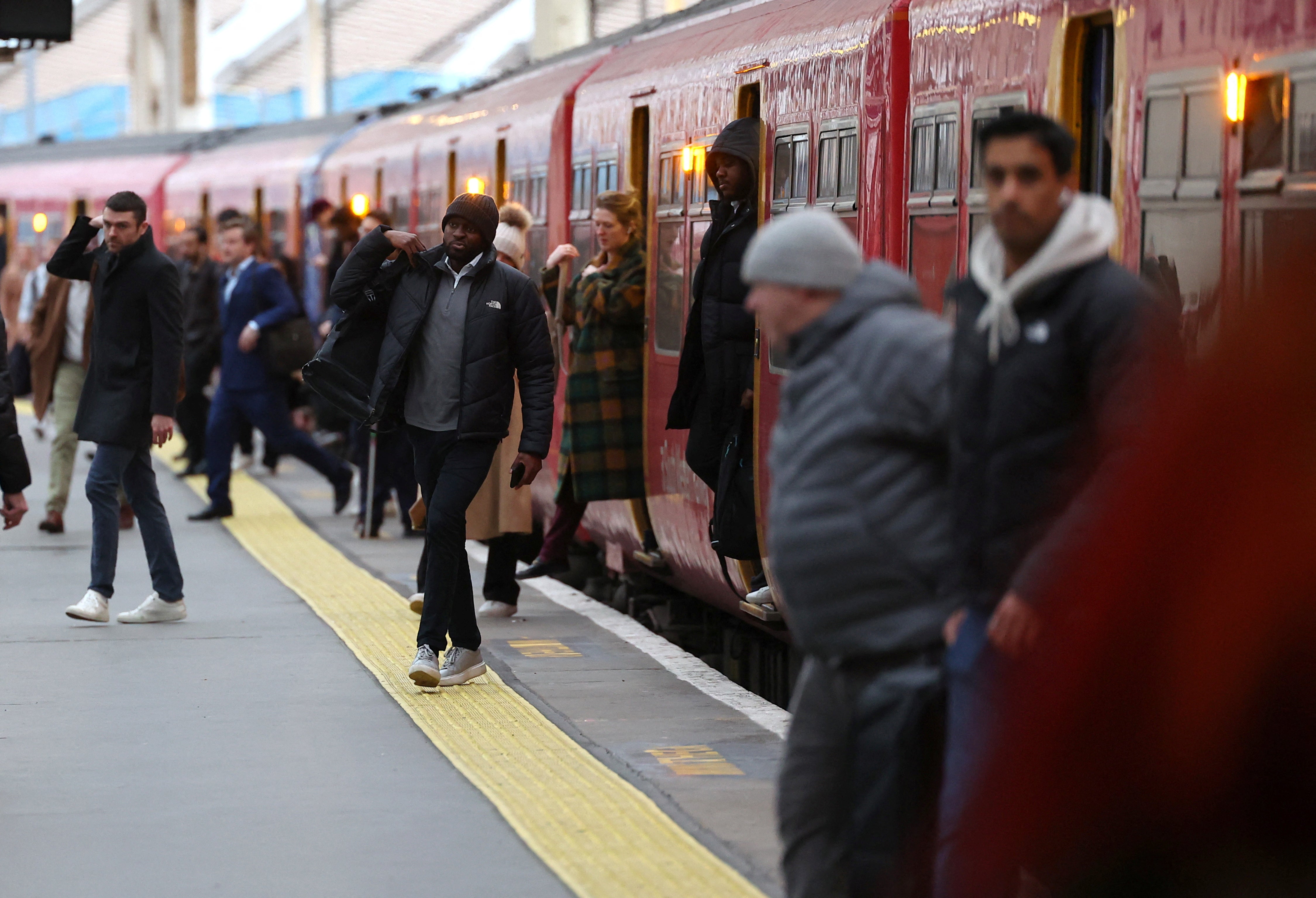Thousands of commuters stranded as one of UK’s busiest train lines blocked
Services are expected to be disrupted for the rest of the day
One of the UK’s busiest railway lines is blocked due to a serious track fault, causing difficulties for thousands of Monday morning commuters.
It is believed a train hit an object on the track.
South Western Railway (SWR) said it is unable to run any services between Woking and London Waterloo. It urged passengers to avoid attempting to travel on the route.
National Rail Enquiries said: “Due to a serious issue with the track at Walton-on-Thames all lines are blocked.
“Please do not travel as there are no services currently operating.
“Disruption is expected to last until the end of the day.”
A spokesman said: “At around 5.50am this morning, a South Western Railway train travelling towards London Waterloo struck an object in the Walton-on-Thames area.
“No-one was injured and all passengers were safely escorted from the train; however, the lines through the area are currently blocked while we investigate.
“Early investigations show the front wheels of the train are derailed, therefore it’s likely to take us some time to get the railway reopened.
“We’re really sorry for the disruption and will update customers on the repairs and timescale for reopening as we know more.”

Services are expected to be disrupted for the rest of the day.
The disruption comes a day after rail fares across England and Wales rose by nearly 5%.
The increase in fares could add £190 to an annual season ticket from Woking to London, taking the cost from £3,880 to £4,070.
It could also see flexi season tickets for travel between Liverpool and Manchester on two days per week over a year rising by £92.60 from £1,890 to £1,982.60.
ORR figures show the Westminster administration provided £4.4bn of funding to train operators in Britain in the year to the end of March 2023.
Last July’s retail price index measure of inflation, which is traditionally used to determine annual fare rises, was 9 per cent.
The consumer prices index, which is a more commonly used inflation figure, was 6.8 per cent in July 2023 but fell to 4 per cent in January. Westminster and the Welsh government set the cap for rises in regulated fares at 4.9 per cent.
These include season tickets on most commuter journeys, some off-peak return tickets on long-distance routes and flexible tickets for travel around major cities.
Join our commenting forum
Join thought-provoking conversations, follow other Independent readers and see their replies
Comments
Bookmark popover
Removed from bookmarks